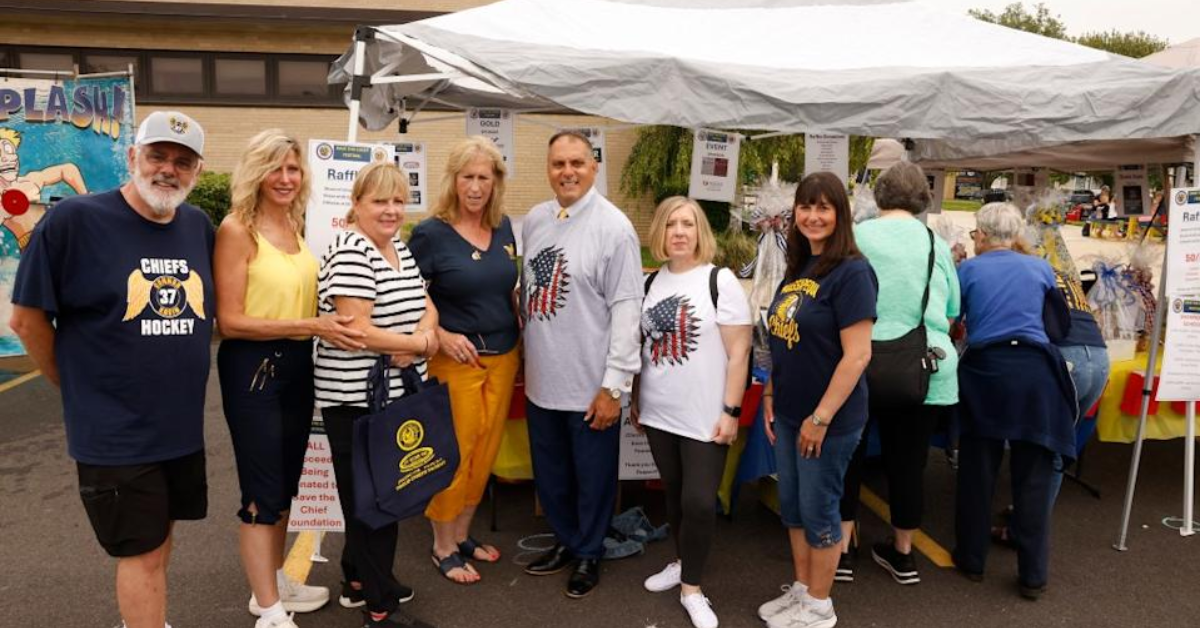A small town on Long Island is making waves after holding a rally in support of their school mascot, the “Chiefs,” despite a state order banning it. The rally, which took place this past weekend, was filled with passionate community members who made it clear that they were not backing down from their mascot’s legacy.
The event came about after the state of New York imposed a ban on the use of Native American mascots in public schools. The decision followed a growing push from Native American groups, civil rights organizations, and activists who argue that such mascots are disrespectful and perpetuate harmful stereotypes. The “Chiefs” mascot has been a staple of the town’s high school for decades, but the state’s mandate has forced the school to rethink its identity.
At the rally, residents wore “Save the Chiefs” t-shirts, waved signs, and chanted slogans in support of their mascot. The crowd gathered outside the town hall, where they expressed their anger and frustration at the state’s decision. For many, the mascot was more than just a symbol of their school’s athletic teams; it was a part of their history, a tradition that they felt was integral to their town’s identity.
“I don’t see how a mascot like the Chiefs can be offensive,” said one rally participant, a local parent. “It’s part of our history, and it represents our school spirit. Changing it feels like they are erasing our past.”
The state’s decision to ban Native American mascots is part of a larger movement across the U.S. to reconsider such symbols, with many schools and sports teams across the country facing similar pressure to change their mascots. New York’s ban specifically targets those that are deemed culturally insensitive or offensive.
But for the residents of this Long Island town, the issue is about more than just a mascot. It’s about standing up for what they believe in and maintaining their traditions. Many rally-goers argue that the state’s ban is an overreach, asserting that their use of the mascot has always been intended as a form of respect, not mockery.

“Everyone here knows that we’ve never meant to offend anyone,” said another rally-goer, a former student of the high school. “It’s about pride. We’ve always celebrated our sports teams and what they stand for.”
While the rally was mostly peaceful, tensions were high. Local officials have been caught in the middle of this debate, as they try to balance the wishes of their constituents with the legal requirements set by the state. Some are calling for more dialogue and compromise, suggesting that a new mascot could be chosen that respects both the community’s traditions and the concerns raised by activists.
State representatives have made it clear that the ban is not negotiable. The decision is part of a broader effort to eliminate any references or symbols that may perpetuate negative stereotypes about Native American culture. However, this town remains firm in its stance, refusing to let go of what they see as an essential part of their town’s heritage.
The “Save the Chiefs” rally has drawn attention to a larger national conversation about cultural appropriation and the role of mascots in modern sports. The debate is not limited to Long Island; many communities across the country are grappling with similar issues.
Some support the ban, believing that the use of Native American imagery can perpetuate harmful stereotypes. Others, like the residents of this Long Island town, feel that their mascots are a source of pride and should not be removed without proper consultation and understanding.
As of now, the town’s school district has not announced any official plans to comply with the state’s mandate. The community remains divided, but the rally showed that there are many who are willing to continue fighting for their mascot and the traditions it represents.








